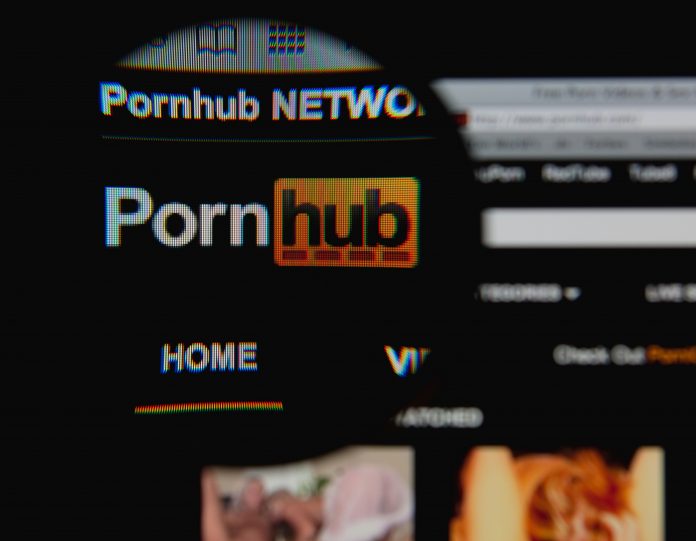The much-discussed UK ban on porn access will begin on the 15 July, 2019: What does this really mean for people trying to watch porn?
It means that known porn providers online will be required by law to carry out age-verification checks on their users, to ensure they are over the age of 18. The UK government say that websites that fail to implement age-verification technology face having payment services withdrawn or being blocked for UK users.
Rowland Manthorpe, writing for Wired on the UK porn ban, commented:
“The porn block will do the same thing online, pushing kids towards streaming sites stuffed with malware, creepy subreddits, and places on the dark web that sell credit cards details – because it seems as if this age verification system is going to use credit cards as its basis. It’s a classic case of driving legal behaviour underground, making it a whole lot dodgier than it was in the first place.”
The move is backed by 88% of UK parents with children aged 7-17, who agree there should be age-verification controls.
Whilst it is a good idea for young minds to be kept away from often violent videos, which can alter their perceptions of what is permissible in a sexual relationship, can the UK make this parental anxiety into functional regulation?
Law implementation is a different game to law creation – it is between the two that intentions are often lost in translation.
How do you verify your age on porn sites after July?
- On entering a site like PornHub, you would land on a neutral page that asks you for your age. Whilst the government emphasise that identity would be protected, it is hard to separate identity from age in these age verification measures.
- The site will then ask you to verify your email address.
- The site will ask you now to use an age verification method, instead of the old system which asked you to tick a box to confirm your age. It will ask you to use either your credit card, passport or driving license to prove your age, or allow you to use a “porn card” that you can buy from your local cornershop.
- It will then extract your age from that government known information associated with your identification methods, or from the newly established card system.
The British Board of Film Classification (BBFC) will be responsible for ensuring compliance with the new laws. They have confirmed that they will begin enforcement on 15 July, after a grace period for sites to update the way they operate.
BBFC Chief Executive David Austin said:
“On entry into force, consumers will be able to identify that an age-verification provider has met rigorous security and data checks if they carry the BBFC’s new green ‘AV’ symbol.
The change in law is part of the Government’s commitment to making the UK the safest place in the world to be online, especially for children. It follows last week’s publication of the Online Harms White Paper which set out clear responsibilities for tech companies to keep UK citizens safe online, how these responsibilities should be met and what would happen if they are not.”
If you wanted to watch porn as a legal adult, you would now have to verify your age to the porn provider, not the government itself.
Think of the website as the older sibling looking after you for the evening, and the government as the parent returning to see how things went. If you’ve ended up not eating and setting fire to the house so to speak, then the punishment will go to the older sibling, not you. But you will definitely be implicated.
Minister for Digital Margot James said:
“Adult content is currently far too easy for children to access online. The introduction of mandatory age-verification is a world-first, and we’ve taken the time to balance privacy concerns with the need to protect children from inappropriate content. We want the UK to be the safest place in the world to be online, and these new laws will help us achieve this.”
The BBFC have also created a voluntary certification scheme, the Age-verification Certificate (AVC), which will assess the data security standards of AV providers.
Certified age-verification solutions which offer these robust data protection conditions will be certified following an independent assessment and will carry the BBFC’s new green ‘AV’ symbol.
CEO of Internet Matters Carolyn Bunting said:
“While our research shows that parents overwhelmingly support age-verification and are confident it will make a difference, we must recognise that digital solutions aren’t the only answer and parents can’t become complacent about their child’s digital world.
“There is no substitute to having regular and honest conversations with your child about what they’re getting up to online, establishing an open dialogue about their digital life from a young age.”
It is unclear how exactly the government will implement, maintain and raise these standards when VPN can be used to pretend that you are browsing porn from a different country, social media sites are outside of the loop and third-party systems will be used to verify age.
The children who are the main concern when it comes to porn exposure could therefore be able to easily outrun this new law.
Though there are countless porn sites, maybe this UK push for protecting children from violent imagery will be the beginning of a functional regulatory system – or maybe it will incite a worse, increasingly violent landscape which will linger underground.











